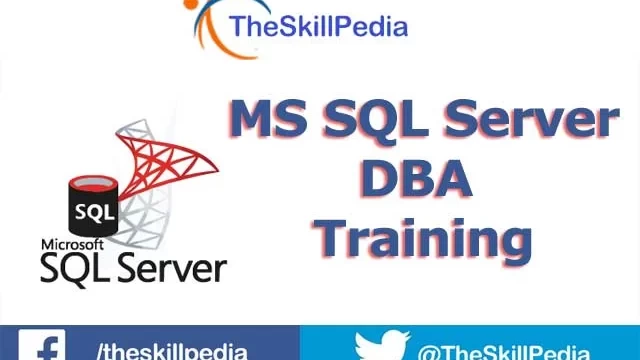MS SQL DBATraining
The MS SQL DBA Training Course is designed for professionals with at least 3 Years of working experience as MSSQL DBA.
Part 1. Database and Table Partitions
Session 1. Creating Data Types, Tables and
partitioned tables
- Database partitions
- Manage data partitions
- Types of partitioning,
- Partition Function & Schema
- Switching data from one partition to another
- Create new data types.
- Create new tables.
- Create partitioned tables.
Part 2 Indexing
Session 2. Introduction to Indexing
- Core Indexing Concepts
- Single Column and Composite Indexes
- SQL Server Table Structures
- Working with Clustered Indexes
- Creating Tables with Clustered Indexes
- Improving Performance through Nonclustered Indexes
Session 3. Advanced Indexing
- Execution Plan Core Concepts
- Common Execution Plan Elements
- Working with Execution Plans
- Designing Effective Nonclustered Indexes
- Performance Monitoring
- Exploring Existing Index Statistics
- Creating Covering Indexes
- Columnstore Indexes
- Partitioned indexes
Part 3. Performance Tuning
Session 4. SQL Server Performance Tuning
- Checking index fragmentation and maintaining them
- SQL Server Database statistics
- SQL Server Profiler
- SQL Server traces
Session 5. Memory use
- Dynamic memory allocation
- Memory consumers
- Monitoring memory consumption
Session 6. Data types and tables
- Importance of data type selection
- Storage cost
- Variable versus fixed length
- Implicit and explicit data type conversions
Part 4 Query optimization and execution plans
Session 7. Statistics
- Heaps
- Monitoring allocation units
- Delayed durability
- In-memory OLTP
- Execution context
- Execution plans
- Plan cache and plan reuse
- Plan recompilation
- Parameterization
- Query store
Session 8. Query tuning
- Query plan operators
- How to measure query cost
- Common query tuning techniques
- Optimizing Indexes
